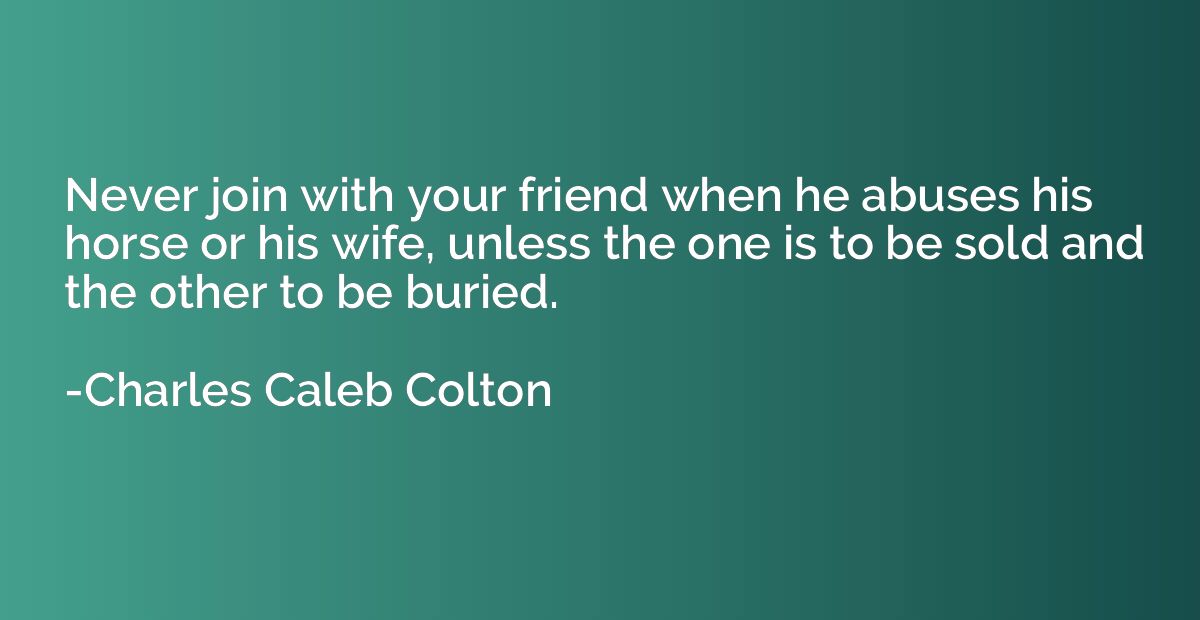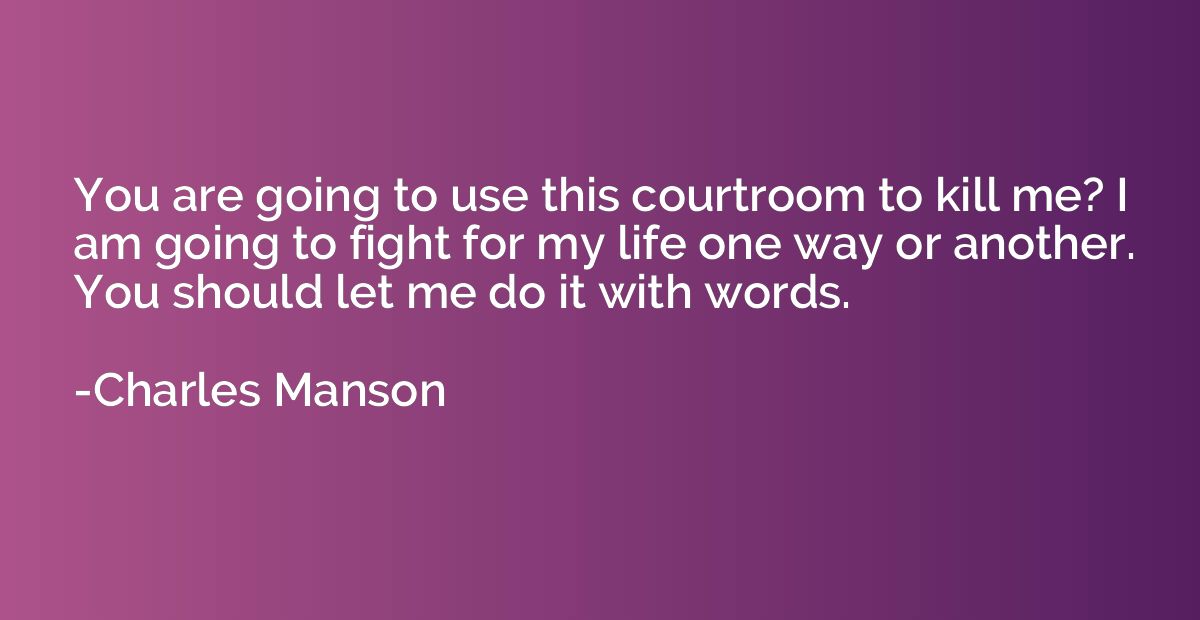Quote by Charles Caleb Colton
Never join with your friend when he abuses his horse or his wife, unless the one is to be sold and the other to be buried.

Summary
This quote essentially advises against condoning or supporting the mistreatment of animals or spouses by friends. It implies that one should not overlook or be complicit in such abusive behavior, except in cases where the horse is to be sold (removed from the abusive environment) or the wife is facing imminent danger and the situation warrants intervention to protect her (the connotation being a grave circumstance). The quote emphasizes the importance of standing against cruelty and supporting those who are being mistreated, even if it means distancing oneself from a friend.














